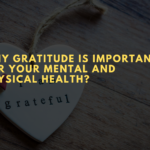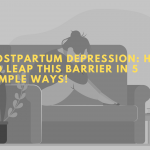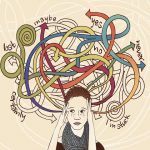Do you know that you may have some personal habits that harm Mental health secretly??
A balanced mind is a key to your general well-being. Unknowingly, you may have the habits that you do on a regular basis that may affect your mental health.
For example, wasting so much time on your mobile phone, not spending enough time outdoors, and constantly wanting to satisfy others, may all have negative consequences on your mental well-being.
Knowing how to live with your emotions and enjoy life even though things look rough is the secret. If you want to start feeling better about yourself, increase your self-confidence, and live the best possible life, the first step is to strengthen your mental health. You will do this by avoiding incorrect behaviors.
Here is a list of 10 personal habits that harm Mental Health and we all possess them, yes, even you.
10 Personal Habits That Harm Mental Health Are:
Capture pictures rather than live in the moment:
We always got into the habit of taking photos at one point or another, usually, when we’re “forever remembering” or nowadays we want to share them on social media.
The reality, though, is that we finally pay so much attention to how many images we make and lose the moment. Remember to leave your camera behind every time you take a ride.
You’re always hunting for perfectionism:
The pursuit of perfection is a good practice – it’s always important to do your best to accomplish an important objective. Doing anything well will, of course, improve your odds of success, but the desire to be flawless at all times will potentially hinder your efforts. Psychologists describe perfectionism as either positive or negative.
Strong perfectionism makes you do your utmost – as a perfectionist, you never deliver anything short of your very best performance.
Habits of constructive perfectionism include setting ambitious expectations, letting go of errors, treating mistakes as opportunities for progress, managing tension and depression within acceptable limits, and loving the process as well as the result.
You do not really work out:
Your waistline, your pulse, and, as it happens, your mental wellbeing have a sedentary lifestyle. Psych Core is regarded as the “enhancing mood of nature.”
Regular exercise can ease the depression of endorphins and other “feel good” chemicals, suppress chemicals from the immune system that worsens depression, and increase the temperature of the body to produce a calming effect.
Regular exercise will also give you trust, distract your mind from problems, enhance social contact, and assist you in the balanced handling of life stresses.
Guilt:
Guilt has a small role in society – an offender is sometimes stopped from committing the crime by being sad for an error.
The practice of culpability also begins in your youth when you learned to “clean your plate because there are hungry children in China,” or to behave in such respects because your family is not proud of you. As you grow older you might have matured the mental grasp of shame too. For example, you may feel bad when you leave your family and are guilty of leaving home to your family. Left unchecked, you may find yourself in a persistent state of shame that keeps you from taking complete care of any mission.
Causes of remorse include magnification of problems, the duty to build or fix problems for you, the view of yourself as a misguided person to commit small offenses, and the inability to forgive yourself.
Eat an unhealthy diet:
The area of nutritional psychology reveals the influence that diet has on our mental health. For eg, consuming multiple processed foods (such as cookies, chips, bread, etc.) increases the risk of depression considerably.
Therefore you can achieve comfort easily by changing your diet if you struggle with depression. Usually, more vegetables, fruits, almonds, whole bread, fish, good fats such as olive oil, and other limited food preparation (the “Mediterranean diet”) are to be consumed.
Try this: Pick one meal a day for a balanced makeover as a starting point. So maybe it is a replacement of succulent cereal with almonds and new berries for a nutritious snack, such as spinach-squeaked egg or oatmeal.
Be hooked to your phone:
There are so many items we use to waste time on screens: jobs, hotel reservations, shopping online, the list goes on. Naturally, there are countless explanations why we are on our mobile – email, social media power, gaming, reading the news.
How much does the permanent show time cost? Burnout and sleeping issues, to name only a couple. More use of social media is associated with less satisfaction with life over time.
Try this: Go for a hike with a family member and leave your mobile at home.
You have to be tuned to what you need to remain well physically and emotionally. Tell yourself today what you need: what is your body supplying? How will your mind be refreshed? How is the soul going to nourish?
Lack of sleep:
Sleep is a source of strength mentally and emotionally. Sleep allows you to face the problems of tomorrow by allowing your brain and body a chance to heal from the struggles of the day before. Losing sleep for one or two nights can make you feel groggy, slumbery, and out of focus, but a habit of sleep loss can wreak havoc on your mental health. 60 to 90 percent of patients with depression have insomnia, as reported by the Sleep Health Foundation. The National Association for Psychiatric Illness notes that more than half of all insomnia cases are linked with depression, anxiety, and pathological stress (NAMI).
Today, according to Harvard Mental Health Letter released by the Harvard Medical School, experts suggest that inadequate sleep can lead to a mental health condition, and can help alleviate the effects of mental health.
Poor sleep patterns include sleep deficiencies or sleep deficiency, coffee in the late part of the day, difficulties previous to bedtime, and gadgets before bedtime.
These ways of thought can be the greatest enemy when it comes to mental health. Breaking unhealthy habits takes a great deal of time and commitment, so you will find new ways of strengthening mental health through patience and dedication.








